Day 1 :
Keynote Forum
Denise A Smart
Washington State University, USA
Keynote: Evaluating sleep hygiene in military field settings
Time : 09:35-10:05
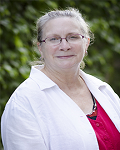
Biography:
Denise Smart has her expertise in military population health and occupational health. Her focus is on workplace safety during training and real-world military disaster responses for National Guard medical personnel. She has over 22 years as a Navy nurse and Public Health officer for the Air National Guard before retiring in 2012. She has been working closely with Dr. Lois James (Co-Investigator) on this two-year research project.
Abstract:
Statement of the Problem: While much is known about the science of sleep, little is known about National Guard medical personnel and their sleep habits. This study explores sleep during the transition from civilian to military duty, and during a training exercise that simulated real-world responses. We examined sleep deprivation in National Guard medical personnel who train and deploy to man-made and natural disasters. The population in this study had dual roles in that they live and work in civilian communities and train and serve for specific military missions when called to respond to disasters that exceed local resources. Our secondary aim was to describe the unique aspects of conducting research in military field settings.
Methodology: A multi-site, longitudinal study using generalized linear mixed models was used to explore the relationship between sleep hygiene, self-reported sleepiness, and any changes in cognitive effectiveness and critical skills performance over the course of the training exercise periods.
Findings: During the transition and disaster exercise period, participants’ sleep quantity dropped significantly from 7.2 hours at baseline to 5.9 hours and cognitive effectiveness dropped from 91% at baseline to 87%. Approximately 1/3 of the sample reported being very sleepy at the beginning of each training day, with 2/3 of the sample experiencing sleepiness by the end of each training day. Sleepiness was associated with decreased performance on critical skills performance over the course of the training exercise periods.
Conclusion & Significance: Conducting research with military medical personnel requires planning, and logistical coordination with contingencies and flexibility of research team. By measuring participant sleep using actigraphy data, sleep diaries, and sleepiness measures we were able to assess the impact of sleep deprivation on participant critical skills performance during the training exercise. Recommendations are made for sleep hygiene and strategies for improving sleep in austere environments.
Keynote Forum
Bjöörn Fossum
Sophiahemmet University College, Sweden
Keynote: Why are complaints about the health care system increasing? Possible explanations
Time : 10:05-10:35

Biography:
Bjöörn Fossum is a paediatric nurse and holds a PhD from Karolinska Institutet, Stockholm, Sweden. Since 2013 he is professor in nursing sciences at Sophiahemmet university, and senior researcher at Karolinska Institutet, Department for clinical science and education Södersjukhuset.
Abstract:
Background: The number of reported complaints about health care has increased during the last decades. This presentation will address possible explanations and places the concept “complaint” in a wider context.
Questions of interest:
- How come that complaints rise when we have improved education and training in communication over several years?
- Is there a negative connection with better education in communication between provider and patients, and complaints on the other hand?
- How can we understand, from the patients´ perspective that the more rights, information, and easy to search and find knowledge, the more dissatisfaction we find?
- Are there other factors that could affect the tendency to complain, during the last 40 years, that we are not aware of?
This paper will add some clues, but maybe new questions will be asked, at the best these could reduce complaints.
We know that satisfaction and compliance or adherence are related; the more satisfied a patient is, the more will the patient follow counseling, advices and treatments. One could say for every unsatisfied patient the health care has failed. Dissatisfaction could create unnecessary suffering for patient and extra costs for the health care regarding that the patient does not follow our recommendation and even seeks new (unnecessary) medical contacts. This we know from a great number of scientific studies; what we have little knowledge about is the “anatomy of complaints”; both how it occurs and how to understand it, and in the longer perspective how to avoid and prevent it.
Networking & Refreshments 10:35-10:55 @ Foyer
Nursing Research | Nursing Types | Scope of Nursing Research | Purposes of Nursing Research | Nursing Research –Challenges and Opportunities | Current Trend in Nursing Research | Nursing Process | Advanced Practice Nurse | Paediatric Nursing | Role of Advanced Practice Nurse | Nursing Theory | Midwifery | Qualitative Nursing Research
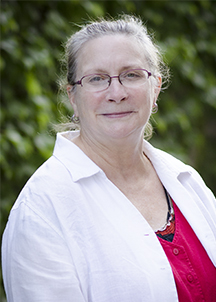
Chair
Denise A Smart
Washington State University, USA

Co-Chair
Lois James
Washington State University, USA
Session Introduction
Millicent M Malcolm
University of Connecticut, USA
Title: Geriatric outreach and training with Care (GOT Care!): An interprofessional solution to enhance training for the healthcare workforce and improve outcomes for vulnerable older adults
Time : 10:55-11:15

Biography:
Millicent M Malcolm is an Assistant Clinical Professor at the University of Connecticut School of Nursing. She was the Primary Investigator for geriatric outreach and training with care, a 3 year/1.4 mil government funded Inter Professional Training and Outreach Project. This project showed promise for inter professional collaborative education and practice as a means to improve vulnerable patient outcomes. She has been a Specialist in the care of older adults for over 30 years, board certified as a Gerentological Nurse Practitioner for the past 18 years. Her clinical practice focuses on home visits for frail older adults. Her research interests include inter professional training and practice, and reducing risks and preventing iatrogenic suffering for older adults. She was awarded the Connecticut Nurse Practitioner of the Year in 2015, and was inducted into the Fellows of the American Association of Nurse Practitioners in 2016.
Abstract:
Geriatric outreach and training with care (GOT! Care), propelled with national grant funding, enhanced training for the geriatric workforce and improve outcomes for older adults. This academic-community partnership included geriatric faculty experts from nursing, medicine, dental medicine, pharmacy, physical therapy, social work, and public health. The team trained healthcare students for culturally sensitive, evidenced-based interprofessional geriatric care. The faculty-student team participated in a home visit outreach program to improve outcomes for older adults with multiple chronic conditions and high emergency department (ED) use. Using a comprehensive geriatric assessment, the team identified risk factors for hospitalization and made recommendations to primary care providers. This innovative quality improvement project resulted in positive outcomes for students, faculty, patients and primary care providers. Interprofessional students (N=264) were trained together and data was collected using the collaborative practice assessment tool. A statistically significant increase (p<.000) in student pre and post scores were found in the community linkages, coordination of care, communication, and information exchange subscales. Contextual data revealed: a) mutual respect for team members, b) open dialogue and communication among disciplines, c) patient centered focus, d) strong desire for collaboration, e) members are given an active role, f) promotion of interprofessional care at post-conference discussions, and g) networking with agencies. The effectiveness of this project for older adults (N=60) followed the Institute of Medicine Triple Aim parameters. Data were collected with a mixed methods approach using PROMIS Global Health 10, the Modified Healthcare Effectiveness Data and Information Set (HEDIS) and an in-person interview. Results indicate GOT! Care to be cost-effective geriatric training program focusing on quality care and improved health for the older adults served, with high levels of satisfaction and decreased ED visits among the GOT! Care patients.
Lois James
Washington State University, USA
Title: Nursing students’ sleep patterns and perceptions of safe practice
Time : 11:15-11:35

Biography:
Lois James is an Assistant Professor at the WSU College of Nursing. She has a BA in Psychology from Trinity College Dublin, and received her PhD in Criminal Justice from WSU in 2011. During her time at WSU, she has brought in approximately $3,000,000 of extramural funding as PI or Co-PI. She focuses on the relationship between sleep, health, and performance in elite populations such as nurses, combat medics, military personnel, police officers, and top tier athletes. Through understanding the prevalence and impact of sleep deprivation and circadian disruption within these populations she creates fatigue management strategies to help build resilience and reduce the risk of performance deficits and chronic health issues. Examples of these strategies are shift-work related fatigue management plans for police officers and nurses, and jet lag management plans for athletes competing overseas.
Abstract:
Statement of the Problem: Nursing students make an abrupt transition from traditional classes into clinical rotations and shift work. Understanding student nurses’ initial sleep patterns in response to clinical rotations can yield insights into opportunities for occupational interventions at the university and hospital level. The purpose of this project was to describe students’ sleep patterns and perceptions of safe practice during their first semester of clinical rotations.
Methodology: We measured the sleep of 19 full-time J2 nursing students before, during, and after their first clinical rotations. Sleep was measured objectively using wrist activity monitors (actigraphy) and sleepiness was measured using sleep diaries for seven consecutive days at each time period. During these same time periods we used Bandura’s self-efficacy scales to measure students’ perceptions of safe practice. We then used multi-level-modeling (MLM) to explore associations between students’ sleep, sleepiness, and their perceptions of safe practice.
Findings: Nursing students’ sleep quantity did not differ across time periods; they consistently received approximately 7 hours and 20 minutes per night. The number of students reporting sleepiness however increased from 29% before rotations, to 32% during rotations, to 39% after rotations. Furthermore, students assigned to night shift rotations had lower self-efficacy scores than students assigned to day shift rotations (82% vs. 87%). Finally, within individual students, feeling sleepy significantly predicted lower safe-practice self-efficacy scores (f=42.55; df=1.60; p<.001).
Conclusion & Significance: Our results reveal that sleepiness significantly degrades student confidence in their ability to perform safe nursing practice. Our work addresses a gap in the total worker health (TWH) research by examining a critical period in the professional development of nurses, and helps to guide occupational interventions—particularly those targeted towards reducing nursing student sleepiness.
Cheryl L DeGraw
Central Carolina Technical College, USA
Title: Admission to discharge: obstetric simulated clinical experiences
Time : 11:35-11:55
Biography:
Cheryl L DeGraw has many years of experience in Maternal-Child Nursing Care. She is a Neonatal Nurse Practitioner and has provided nursing care in labor and delivery, all three levels of the Newborn Nursery, and in Postpartum or Mother-Baby Units. She is currently the Lead Instructor for Family-Centered Nursing Care at a Technical College in South Carolina. She developed obstetric simulated clinical experiences (SCEs) to provide alternative clinical rotations to hospital settings when they are unavailable for nursing students. These SCEs have increased nursing student’s understanding of the antepartum, intrapartum postpartum and newborn nursing care.
Abstract:
With an increase in nursing programs, there is more competition for clinical sites for maternal-newborn clinical rotations. High fidelity simulated clinical experiences are being substituted for hospital clinical rotations. A technical college in the Southeast region of the United States of America is using five-hour simulated clinical experiences in which obstetric and newborn high-fidelity manikins are used as substitutes for hospital clinical rotations. Three patient scenarios are used for the simulated clinical experiences: gestational diabetes, preeclampsia, or preterm labor. Newborn nursing care and maternal complications are also incorporated into the scenarios. This use of simulated clinical experiences has been endorsed by the National Council of State Boards of Nursing and the National League of Nursing as a substitute for hospital clinical rotations. Nursing students have increased understanding of the entire antepartum nursing care to postpartum discharge process by participating in the simulated clinical experiences and are able to obtain hands-on nursing care experience when unable to obtain the clinical experience due to lack of a hospital clinical rotations.
Eha Hõrrak & Mare Tupits
Eha Hõrrak & Mare Tupits, Tallinn Health Care College, Estonia
Title: The quality of nursing documentation in Tallinn Children Hospital
Time : 11:55-12:15

Biography:
Abstract:
Statement of the Problem: Growing interest in using NANDA-I nursing diagnoses has been observed in health care facilities due to the fact that it ensures using common terminology for patient’s health assessment and in planning nursing care. Nursing documentation is uneven in quality in Estonia which hinders the availability and continuity of nursing care. Quality standards and indicators are not used for consistent assessment. Nurses are filling nursing records and do not consider them to be part of the entire nursing process. It leads to poor-quality nursing documentation, which prevents communication between simple, structured and focused professionals, which in turn affects the quality of patient care. The aim of the study is to describe the quality of nursing documentation in Tallinn Children Hospital. The research is quantitative, descriptive study.
Methodology & Theoretical Orientation: Sample was taken from nursing records before and after NANDA-I nursing diagnoses training for nurses. The selection criteria’s were: patient had to be in hospital for at least three days and there was individual nursing care plan for the patient. Data collection was done during September 2016 - March 2017. D-Catch instrument, the 4-score Likert scale were used. Data analysis: SPSS 19.0, descriptive statistics, means and t-test were used.
Results: 87 nursing record from 8 departments were evaluated (42 before and 45 after training). The results showed statistically reliable differences in the improvement of the quantity of the structure of nursing record (t(85)=-3.004, p=0.004), quality of nursing anamnesis (t(85)=-2.915, p=0.005), quantity of nursing diagnoses (t(85)=-4.387, p<0.0001), quality of nursing diagnoses (t(85)=-5.768, p<0.0001), quantity of nursing interventions (t(85)=-2.982, p=0.004), quality of nursing interventions (t(85=-4.343, p<0.0001), quantity of assessment (t(85)=-2.439, p=0.017) and quality of assessment (t(85)=-3.209, p=0.002). No statistically reliable differences were found for the quantity of nursing anamnesis and the legibility of documentation.
Conclusion & Significance: The study showed the importance of NANDA training in application of new documentation requirements in nursing practice.
Kristina Krivats Arba
Tallinn Health Care College, Estonia
Title: Improving Afghanistan midwifery - professional activities during antenatal care, labour and postpartum in North and East Afghanistan: based on interviews during professional training for Afghan midwives in Estonia, Tallinn Health Care College
Time : 12:15-12:35

Biography:
Kristina Krivats-Arba is a Midwife Curriculum Lecturer-teacher at Tallinn Health Care College, Estonia. Her research interests includes Midwifery and healthcare.
Abstract:
Background: The research is carried out in the framework of the development project: improving quality of medical and info-technological education in North and East Afghanistan in 2014-2016. Afghan women's health indicators vary significantly from global standards. Afghanistan’s maternal mortality rate was second highest in the world. Neonatal mortality was 60 deaths per 1,000 live births in 2002. By 2010, the maternal mortality rate had reduced to 327 deaths per 100,000 live births. The rate of educated midwives in Afghanistan is still insufficient. The shortage of skilled birth attendants has been a key factor in the high maternal and newborn mortality in Afghanistan. Efforts to strengthen midwifery pre-service education in Afghanistan have increased the number of midwives from 467 in 2002 to 2954 in 2010.
Purpose: To describe and find out factors which impact midwifery professional activities during antenatal care, labour and postpartum in North and East Afghanistan and how to improve medical and info-technological education to target group.
Design: The research method is qualitative, based on semi-structured interviews. The target group was nine Afghan midwives from North and East Afghanistan. The questionnaire consisted of questions which were divided into three themes: antenatal care, labour and the postpartum period. The interviews were carried out in Tallinn Health Care College. Interviews were conducted in the English language and recorded on video. The interview was voluntary, and the anonymity of the participants was guaranteed. The results were transcribed, processed and analysed.
Findings: Antenatal care, labour, and the postpartum period affect the most cultural and religious beliefs and the standards prevailing in the society. Antenatal care, labour and postpartum period were often reported to be underused, even when available. In the cities the midwife assistance was more accessible. Midwives recommend go to a hospital to give birth, speaking about the risks of labour at home. There was limited and uneven understandings of the importance of antenatal care and impact the risks to labour and the post-natal period. Afghan midwives require modern and evidence-based training what is based on accepted guidelines, medical and info-technological education. The project needs to continue.
EmÃlia Campos De Carvalho
University of São Paulo at Ribeirão Preto College of Nursing, Brazil
Title: Advanced practices: concepts, divergences and challenges
Time : 12:35-12:55
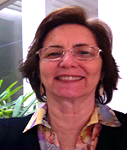
Biography:
Emília Campos De Carvalho RN, PhD is a Senior Professor at University of São Paulo at Ribeirão Preto College of Nursing (EERP-USP), Brazil. She is a Teacher and Advisor of nursing students in doctoral, master’s and undergraduate courses. She has several clinical researches published in journals. She has experience on the following subjects: nursing process, simulation, communication, and clinical trials. She has a Scholarship in Research Productivity of the National Council for Scientific and Technological Development – CNPq.
Abstract:
Advanced nursing practice dates back to the 1960s; however, it still has different understandings regarding its conceptualization and application. The purpose of this presentation is to reflect on the scope of this concept, the divergences related to its understanding and its challenges in the field of assistance, teaching and research. The concept of advanced nursing practices is broad, it involves: professional training, as to cognitive aspects (specialized knowledge base), acquisition of mental abilities (clinical reasoning and ability to make complex decisions) and technical skills (expanded practice); formal qualification (diploma or certifications); and the characteristics of the country (health systems and occupational legislation). The divergences observed in this field make it difficult to determine the state of the art of advanced practices and may be related to the legal and educational aspects of the professional practice, the different scenarios and the characteristics of the countries. At first, its purposes contemplate expanding access to care due to the number of doctors; redistribution of labor; response to new demands; quality of care; financial issues; and professional recognition. To reach it, different strategies are described in the literature: home visits, internships, realistic simulations with actors, patients and simulators, discussions, consultations, different models of assistance, use of standardized language systems, among others. In the field of research, qualitative and quantitative methodologies have sought to identify advanced practices, perceptions of performance and experiences lived through the effects of educational interventions, through controlled trials with performance measures. The challenges reflect the comprehensiveness of the concept and characteristics of the countries. They comprise the practice of care (in particular the competence and scope of the professional practice), education (which lack measures to evaluate the result in the quality of care) and investigations (which are still incipient for most specialties and places).
Lunch Break 12:55-13:45 @ Peacock Restaurant
Patricia K Amado
University of Miami, USA
Title: The lived experience of women with breast cancer in the surveillance phase of recovery: a liminal process to healing
Time : 13:45-14:05

Biography:
Patricia K Amado received her Undergraduate Nursing degree from DeSales University (BSN), her Master’s degree in Nursing Education MS(Ed), from Florida Atlantic University and her PhD from Barry University. She is currently enrolled in a FNP program to enhance her clinical expertise. Her areas of teaching include undergraduate and graduate courses across the curriculum as well as under graduate student advisement and mentorship. Her research is focused on areas of breast cancer and creating healthy transition post treatment. She is also recognized as a speaker in the nursing profession. She has spoken at international conferences and schools of nursing regarding her creation of liminal pathways in transitioning through chronic illness. Her research formed the basis of a concept analysis framework which she is developing to advance nursing practice. Past and present positions include Sigma Theta Tau, Delta Epsilon Iota International Honour Society and she is an active Member of the NLN and the ISNCC. Her most recent project is publishing her dissertation; the lived experience of women with breast cancer during the surveillance phase of recovery: a hermeneutic phenomenological inquiry.
Abstract:
Background: The use of language to create meaning is a way that human beings can make sense of their reality. The diagnosis of cancer is an earth shaking event and trying to make sense of it is a huge driving force in coping with this insidious disease. The use of writing and sharing stories gives insight. In order for healthcare givers to stay focused on the patient, a holistic approach needs to be incorporated in the nurse’s plan of care for the cancer patient. The importance is in treating body, mind, and soul. The National Cancer Institute ([NCI], 2012); Breast cancer leading cancer in women ages 25-70; ([ACS], 2012) 2.9 million breast cancer survivors in the US Grant, Economou & Ferrell (2010) 30% of all new cancers are breast cancer IOM ( 2006) study report focus on survivorship clinics.
Research Design: The use of a qualitative design with a hermeneutic phenomenological approach will be followed to study the lived experience of women living with breast cancer. The study will utilize van Manen’s hermeneutic phenomenological approach in exploring the lived experience, which focuses on a unique view into each human experience through the examination of language to gain knowledge from textual discourse and reflection and conversational interviews. Van Manen’s six research activities will guide the interpretation of the findings. Qualitative researchers postulate that research cannot be seen objectively from the outside.
Results: Five of the 25 participants in this study discussed positive outcomes as a result of their experience with breast cancer. This study suggests that self enhancement or an overly positive bias about oneself is a liminal pathway to resiliency when experiencing illness stress. This study highlighted the need for understanding the role of resiliency and facing illness. Creation of a concept analysis specific to survivorship nurses have an important role on the medical advice and can have a direct impact on how the patient understands the disease process.
Strengths & Limitations: This study provided insight into the participants’ lived experiences of the way women adapt by the use of narrative discourse to heal. The findings of this research study are limited by the possible homogeneous demographic characteristics of the research participants such as the locale of the study. A different socioeconomic area may warrant different results. The need to explore younger survivors could be a premise for further research on this topic.
Implications for Future Research: Gaining a deeper understanding from the women’s illness narratives is a progressive and creative method in exploring their lived experience. This study will stimulate thought provoking dialogue in nursing circles about innovative paths about illness, health, and healing throughout the trajectory of living breast cancer.
Dónal O’Mathúna
University of Miami, USA & Dublin City University, Ireland
Title: The duty to care: Examining nurses’ ethical responsibility to report for work in the face of disasters and extreme events
Time : 14:05-14:25

Biography:
Dónal O’Mathúna is Associate Professor in the College of Nursing at The Ohio State University, USA and in the School of Nursing & Human Sciences, Dublin City University, Ireland. His research interests focus on both healthcare ethics and evidence-based practice. His ethics research has focused on disasters and humanitarian crises. He has led funded research projects on healthcare and research ethics in the context of disasters and humanitarian crises. He has contributed to ethics initiatives and guidelines with the World Health Organization, UNICEF and the UN agency for disaster risk reduction (UNISDR). As the director of a new virtual Center for Disaster & Humanitarian Ethics (http://www.ge2p2.org/cdhe), he is helping develop practical tools and support strategies to facilitate reflection on ethical issues in humanitarian research. He has spoken and published widely, including peer-reviewed articles in The Lancet, Bioethics, BMC Medical Ethics, Journal of Evidence-Based Medicine, and Worldviews on Evidence-based Nursing.
Abstract:
Epidemics, pandemics and disasters occur with increased frequency. Concerns are increasing about chemical, biological, radiological, nuclear, and explosive (CBRNE) events. The potentially large numbers of injured, traumatized and dying patients require many nurses and other healthcare professionals. Sometimes, caring for patients puts nurses at serious risk of harm, such as when patients are infectious or contaminated. This creates ethical conflicts between one’s professional duty to care and the need to care for oneself, one’s family, and future patients. History records many examples of nurses accepting significant risks during wars and infectious outbreaks, like with Ebola virus disease. Such decisions have been lauded as heroic whether undertaken for personal moral or religious reasons, or in response to a professional duty to care. However, some question whether such a duty to care is ethically obligatory in the face of pandemics and CBRNE events. The University of Toronto’s report into pandemic influenza, completed after the SARS outbreak there, called for much further ethical analysis of the duty to care. A systematic review found that nurses are under-prepared for the ethical challenges faced in disasters. This presentation will review the ethical arguments used to justify and also limit the duty to care. It will discuss the World Health Organization’s guidance on ethics in pandemics which notes that the duty to care is not unlimited during pandemics, and that employers and governments have reciprocal duties to provide training and protective equipment. This presentation will argue that rather than looking to legal and regulatory responses, the ethical virtues of courage and volunteerism should be fostered as part of promoting trust in nurses and other healthcare professionals. Virtue ethics includes a narrative approach that values the role of stories to inspire people to strive towards ethical ideals and praiseworthy leadership, even when caring involves serious risks.
Berit Taraldsen Valeberg
Oslo Metropolitan University, Norway
Title: Nurse anaesthetist students’ experiences of patient dignity in perioperative practice
Time : 14:25-14:45

Biography:
Berit Taraldsen Valeberg is an Associate Professor and Head of Studies - Area of responsibility 7 at Oslo Metropolitan University, Norway.
Abstract:
Aim: To describe how nurse anaesthetist students experienced patient dignity in perioperative practice.
Design: A hermeneutical design and the critical incident technique were used in order to obtain experiences from practice.
Method: In the autumn of 2015, after participating in a mandatory lecture on ethics, 23 nurse anaesthetist students reported their experiences and interpretation concerning violation and preservation of patients’ dignity in the operating theatre. The text, which was a compilation of descriptions of a 35 incidents, was analysed by using a hermeneutical text interpretation.
Findings: The text revealed three main themes preserving patients’ dignity; allocating time for the patient, inviting the patient to participate, and shielding the patient’s body. Furthermore, three main themes of dignity violation were identified; alienation, backbiting, and invasion of the body’s intimate sphere.
Conclusion: Discussion and reflection based on the personal experience of the students during their practice are ways to strengthen ethical awareness and promote an ethical and dignified caring culture.
Gro Gade Haanes
University of the Faroe Islands, Faroe Islands
Title: Very old people’s management of hearing and vision in daily life
Time : 14:45-15:05

Biography:
Gro Gade Haanes is an Assistant Professor in Pharmacy, Ph.D. reader, Sjúkrarøkt knowledgeable faculty at University of the Faroe Islands, Faroe Islands. Gro Gade Haanes at the Department of Health and Society will defend his dissertation for the degree PhD. "Hearing, vision, and lighting conditions among older recipients of home care.
Abstract:
Statement of the Problem: Age related hearing and vision impairments are normal and increase by age. Sensory impairments are known risk factors for functional decline, reduced social participation, withdrawal, depression and accidents. Hearing and vision impairments make people vulnerable and have an impact on an individual’s quality of life. The purpose of this study was to investigate how very old recipients of home care manage their hearing and vision in daily life. A second aim of this paper was to describe other daily matters of importance for the very old.
Methodology & Theoretical Orientation: Explorative, descriptive design. Semi-structured interviews were conducted with 10 recipients of home care, aged 89 years. Two broad areas of enquiry were investigated: how the elderly evaluated their hearing and vision and how they managed important daily matters. The interviews were analyzed in line with a qualitative thematic analysis method.
Findings: The participants felt frail and were coping with several challenges not directly related to hearing and vision impairments. The manifest content showed that all admitted to having hearing and vision problems, but the more latent content of the data showed that the elderly were marked by their high age and expressed a feeling of loneliness was expressed together with a lack of energy.
Conclusion & Significance: Very old people who receive home care admit to have impaired hearing and vision, but although they often feel loneliness, hearing and vision problems could not be prioritized by the very old. Instead, they use their most of their impaired energy to manage other serious health challenges.
Karen M Lewis
Western Carolina University, USA
Title: Implementing yoga into the management of patients with refractory low back pain in an outpatient clinic setting
Time : 15:05-15:25
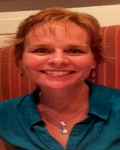
Biography:
Karen M Lewis is a board certified Family Nurse Practitioner, Assistant Professor and Director of the Post-Master’s DNP Program in the School of Nursing at Western Carolina University in Asheville, NC, USA. Prior to a career in academia she spent many years working clinically in the field of Neurosurgery where she cultivated an interest in spine related issues, prevention, and treatment. Her experience led her to a position where she successfully developed and managed a hospital based spine clinic. This career experience heightened her interest in complementary treatments for chronic low back and neck pain, and is her current research area of interest.
Abstract:
Purpose: To evaluate the effectiveness of implementing yoga into the treatment of patients with chronic low back pain.
Design: Quantitative analysis with opportunity for qualitative feedback.
Method: Effectiveness of this complementary treatment was assessed using a pre-test/ post-test design of patients who volunteered to participate in yoga classes as part of their back pain management. Measurements included low back pain rating, perception of back pain interference with daily activities, and self-efficacy in dealing with chronic low back pain.
Findings: Although no statistically significant findings were found due to the small sample size, most participants demonstrated improved individual scores on all measurement surveys including qualitative comments.
Conclusion: Based upon the findings of these pilot study further studies on implementing yoga into the treatment of chronic low back pain are encouraged.
Networking & Refreshment Break 15:25-15:45 @ Foyer
Vivian Afrah Puplampu
University of Regina, Canada
Title: Assessing the efficacy of student centered learning through nursing research
Time : 15:45-16:05

Biography:
Vivian Afrah Puplampu obtained her Bachelor’s degree in Nursing from the University of Ghana, Ghana, and a Master’s and Doctorate degrees from the University of Alberta, Edmonton, Canada. She has practiced as a Registered Nurse and a Nurse Educator both in Ghana and Canada for sixteen years. Currently, she is an Assistant Professor in the Faculty of Nursing, University of Regina, Canada. Her expertise is in geriatrics and nursing education. She is very passionate about using innovative teaching strategies such as context-based learning in facilitating students learning.
Abstract:
Statement of the Problem: Student centered learning (SCL) has received tremendous support in higher education because of its focus on students and the benefits to their learning. Some of the benefits of SCL are: promoting students’ problem solving and critical thinking skills, increasing communication skills and the ability to work in teams, and promoting interest in lifelong learning. While SCL continues to be well supported as the teaching approach that can prepare health professionals for the rapid changing 21st century work environment, some educators and students have expressed concerns about the approach including its emphasis on openness which creates an instructional approach that appears to lack structure and guidance. This paper presents the perception of nursing students and faculty on their transition to a context-based learning (CBL) program, a form of SCL using an exploratory descriptive design.
Methodology & Theoretical Orientation: Focus groups, participant observations and document analysis were used to collect data from nursing students and faculty members using problem-based learning (PBL) as the framework for the study.
Findings: Although both students and faculty members identified the many benefits of CBL, all participants expressed that they would like both the CBL and lecture approaches to be used in the preparation of nursing students.
Conclusion: Through research, the evidence supporting the effectiveness of SCL is verified and confirmed as an appropriate teaching approach to prepare health care professionals for today’s health care environment. Students in the health sciences such as nursing learn discipline specific concepts, which require explanation to students, especially in first year of the program. Thus, didactic instruction on some occasions is needed to clarify concepts and guide students in their learning. Based on this study’s findings and previous studies, both SCL approaches and lecture methods are recommended to efficiently prepare students for the 21st century health care system.
Ãsa Róin
University of the Faroe Islands, Faroe Islands
Title: Person-centeredness in elder care: a secondary analysis of data from a study among home-dwelling men and women in the Faroe Islands
Time : 16:05-16:25

Biography:
Ása Róin is an Assistant Professor at the University of the Faroe Islands, Department of Health and Nursing Science, Faroe Islands.
Abstract:
Aim & Objectives: As individuals in Western society’s age, there is increasing demand for home-based care to help older people stay in their homes for as long as possible. A person-centred approach to care has been recommended in the literature. However, person-centredness as a concept is an often quoted, but ill-defined concept. This qualitative study investigates how older people’s experiences with home-care reflect a person-centred approach to care. Data derive from an earlier study on ageing among home-dwelling men and women who are aged 67 to 91 and living in the Faroe Islands.
Methods: The study is a secondary analysis of data from an earlier qualitative study. Latent thematic analysis was used which meant coding issues of potential interest and collecting these codes into themes.
Results: Three themes appeared to combine the initial codes: sense of involvement, sense of meaningfulness and contextual conditions. Overall, the analysis showed that the users were seldom involved in planning or scheduling the care they received. What they were offered did not always make sense to them or correspond to their needs or preferences.
Conclusion: Findings from this study point at some possible barriers to successful implementation of person-centredness within elder care. Especially contextual conditions seem to limit the facilitation of person-centred practices.
Fiona Cust
Staffordshire University, UK
Title: Peer support for mothers with antenatal depression
Time : 16:25-16:45

Biography:
Fiona Cust was a Senior Lecturer on the Specialist Practitioner Undergraduate and Master’s Programme (Health Visiting) teaching both at undergraduate and postgraduate level. She is responsible for a personal tutor group, module development, module leading, teaching, and marking/assessing on a number of relevant field based modules in addition to marking on both adult and mental health modules. She teaches, assess and supervise both undergraduate and postgraduate students (Master’s and Doctoral). She assists regularly with OSCE examinations and she is an Examiner for the undergraduate nurses (adult, child and mental health) within their practical examinations. She teaches regularly on both the children’s, adult, and mental health degree programme in addition to guest lecturing on the Social Work Degree, Paramedic Degree, Midwifery Degree, Psychology Doctorate programme and Operational Departmental Practitioners Foundation Degree. She is also involved in a Postgraduate Research Awareness module and Inter Professional Education workshops.
Abstract:
As the number of mothers suffering from postnatal depression (PND) continues to rise at an alarming rate it was decided to explore methods of trying to support new mothers diagnosed as at risk of PND. Recent NICE guidelines (2015) have highlighted the need for the utilization of psychosocial support as opposed to the, often first hand, use of antidepressant medication. One of the main reasons for PND has been a distinct lack of social interaction and isolation. Could, therefore, disclosing to a fellow mother who has previously shared a similar journey may help to assist in the recovery from this debilitating illness? A small number of peer support workers (PSW’s) were recruited to offer one to one home visits within the postnatal period to a mother considered to be at elevated risk of PND as diagnosed by the Edinburgh postnatal depression scale (EPDS). The PSW’s visited the mother within their own homes from week six postnatally for a period of six weeks. Results were recorded both quantitatively and qualitatively by the recording of the EPDS scores, logbook entries and one to one interviews. These were transcribed, coded and categorized. Results collated display that the PSW’s did indeed have a positive effect upon the mothers’ mental health, outlook and indeed, their relationship with their baby.
Joanne Porter
Federation University, Australia
Title: Undergraduate nursing student’s preparation for clinical placement: A simulated live ward experience
Time : 16:45-17:05
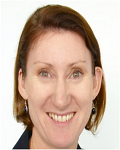
Biography:
Joanne Porter currently works at the School of Nursing, Midwifery and Healthcare at Federation University Australia, Gippsland campus. She teaches into the undergraduate program, and postgraduate higher degree supervision. She has worked both in Metropolitan and regional health facilities predominantly in emergency departments and intensive care units. Her research interests include, deteriorating patient outcomes, simulation, and emergency care research. Her PhD through Monash University used a mixed methods approach to investigate the affect family presence during resuscitation (FPDR) had on personnel in the emergency department. She currently holds the position of Senior Lecturer and has an extensive research history with a number of publications and competitive grants.
Abstract:
Aim: The aim of this paper is to report and showcase the development and evaluation of a simulated live lab ward experience for undergraduate nursing students.
Background: The proposed research will use live human actor simulation compared to manikin simulation to develop clinical thinking skills and the transition to practice for nursing students. In a study by Shinnick and Woo in 2012, they found that nursing students liked the practicality of human actors in a 12 minute simulated environment believing it enhanced their safety of practice and critical thinking skills. The use of simulation engages students through multiple learning styles allowing students to practice skills in a safe learning environment with the added important feedback and reflection loop.
Method: The live lab experience included 15 patient actors and relatives, together with undergraduate final year students in the role of registered nurse and second year students. The day included a pre-briefing, 2 hour shift in the live lab caring for the patients, a focus group interview and final full cast debriefing session.
Results: A total of 13 students participated in the event; each started the day with heightened anxiety however stated that the experience increased their clinical skills, teamwork, and communication skills.
Conclusion: A live lab simulation experience is greatly valued by participants and leads to increased clinical confidence. Although a time and resource intensive exercise the staff, patient actors, research crew and nursing student participants all enjoyed the experience which helped develop and enhance clinical performance and preparation.
Eman Tawash
Royal College of Surgeons in Ireland, Bahrain
Title: Factors influencing the high school students’ choice of a nursing career in Bahrain: Development of a best practice model for nursing recruitment
Time : 17:05-17:25
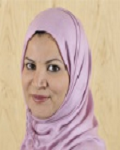
Biography:
Eman Tawash was qualified as a Registered Nurse and worked as a Nursing Lecturer in different institutions for many years. She did her Master’s in Health Professions Education and her PhD in Nursing education and recruitment. She is currently the Director of BSc Nursing programme in RCSI Bahrain. She is very interested in research, especially nursing and health professions education research.
Abstract:
Statement of the Problem: In response to the shortage of nurses, Bahrain continues to have high dependence on expatriate nurses to maintain the health services. The development and expansion of an indigenous nursing profession through increasing the number of Bahrainis working as nurses must be a health service priority. However, in attracting local candidates to study nursing, the public image of nursing in the Middle East continues to be of concern. The study aimed to identify factors that influence the high school students and their parents to choose the nursing profession as a future career and to explore and test strategic interventions to promote nursing as a career.
Methodology: A mixed methods research approach was used incorporating quantitative and qualitative dimensions. The study sample included high school students, students’ parents, career guidance counsellors and nursing students. A one-group pretest-posttest design was also used to introduce a nursing recruitment intervention to a group of high school students.
Findings: Generally, high school students, parents, career guidance counsellors and nursing students have positive perceptions about nursing. However, nursing does not seem to be an attractive career option. It is proposed that the public perceptions of people about nursing may be grounded in strong cultural influences and any efforts to improve the enrolment and retention of Bahraini nurses should consider enhancing the social values of the nursing profession.
Conclusions: This study is seminal in being the first to report on factors that affect the high school students’ perceptions and choice of nursing as a career in Bahrain. The findings are important in ensuring indigenous nursing developments in the small country of Bahrain and indeed the wider Gulf region. Recommendations are made for nursing practice and education through the Nursing Positive Recruitment Arabic Model (NURS-P.R.A.M) to work together to adopt new and creative strategies that can be employed to combat unfounded negative perceptions of nursing which may exist.
Evalina Van Wijk
Western Cape College of Nursing, South Africa
Title: Evalina Van Wijk, Western Cape College of Nursing, South Africa
Time : 17:25-17:45

Biography:
Evalina Van Wijk is a Psychiatric Nursing Lecturer in Department of Psychiatric Nursing, Western Cape College of Nursing Cape Town, South Africa and she is responsible for the advanced Psychiatric Nursing module. She obtained her Doctor of Philosophy (PhD) in the year 2011 at the University of Cape Town, South Africa.
Abstract:
Statement of the Problem: Although advanced psychiatric nursing (APN) is a relatively new specialty in South Africa, there is no specific scope of practice /competency framework developed for this category of nurses. Therefore, basic psychiatric registered nurses and APN’S have the same job description with the result that the blended role of APN’S as equal partners in the holistic care of the bio-psychosocial needs of patients is generally not accepted and they experience resistance within multi-disciplinary teams. Due to the lack of a specific scope of practice/competency framework developed for this category of nurses other discrepancies’ between the different training providers in the country identified were: different subject content as well as different skills/competencies are taught and assessed. Consequently not all graduates enter the profession with the same advanced level of knowledge and skills. This result in that state as well as the private sector can’t draw up different job descriptions for advance psychiatric registered nurses and are compelled to use the same job description as those that is used for basic psychiatric registered nurse. These cause much unhappiness and demotivation amongst APN’S trained by different training providers because the skills/competencies they were taught are not reflecting on their job description.
Challenges: Most of the multi-disciplinary team members are not aware of the different skills and knowledge taught to advanced psychiatric students which grossly disadvantage them because they are not always allowed to work with patients and render care on an advanced level-this result in that when they complete their course, some of them are unable to work as an independent practitioner/to render care on an advanced level. Due to the lack of a specific scope of practice for APN’S they have the same job description as those with basic psychiatry, this further lead to conflict amongst the different candidates because those who did their courses at different training facilities cannot perform the same duties. This also lead to much unhappiness amongst graduates because some felt on completion there are very few specialist posts available, and even if they manage to be appointed in such a post, their expertise is not adequately utilized.
Conclusion: It is anticipated that if there was a specific scope of practice for APN’S, training providers should use it when designing the theoretical and practical curriculum. This would enable graduates irrespective of where they did their training to adequately address the bio-psychosocial needs of patients and families, to address the burden of disease, to maintain the sustainable goals and to play a pivotal role in alleviating the manpower shortage.
Implications for Nursing: Since it was identified by the South African Nursing Council and Health Care Providers that the scope of practice of APN’s in South Africa urgently needs clarity and parity, a working group, in collaboration with SANC, started to delineate the scope of practice of APN’s and to develop separate job descriptions for basic registered psychiatric nurses and APN’S.
